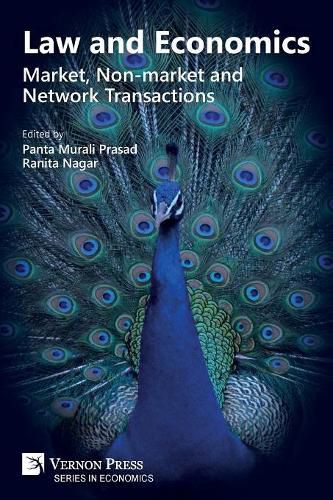Readings Newsletter
Become a Readings Member to make your shopping experience even easier.
Sign in or sign up for free!
You’re not far away from qualifying for FREE standard shipping within Australia
You’ve qualified for FREE standard shipping within Australia
The cart is loading…






This title is printed to order. This book may have been self-published. If so, we cannot guarantee the quality of the content. In the main most books will have gone through the editing process however some may not. We therefore suggest that you be aware of this before ordering this book. If in doubt check either the author or publisher’s details as we are unable to accept any returns unless they are faulty. Please contact us if you have any questions.
It is well known that sustainable development practices, technological innovation and good governance play a major role in the accumulation of wealth in a knowledge economy. Hence, the state promotes competition, provides incentives to conserve resources and creates opportunities for citizens to push for innovation and invention. As a result, the formulation of efficient legal rules is essential for protecting intellectual property rights, fully specified contracts and effective ex-ante and ex-post systems. However, can efficient legal rules improve societal well-being by changing the behaviour of individuals and basic social structures and trends? And if so, how can these legal rules be formulated?
In their Second International Conference on Law and Economics, the Indian Institute of Technology Kanpur aimed to address the formulation and implementation of efficient legal rules while at the same time working towards a greater dissemination of law and economics-based research. This book is the final outcome of this conference that saw over thirty presentations take place. The twelve carefully selected contributions to this volume cover a broad range of topics within law and economics from engaging with decisions makers to create a process for the routine collection of empirical evidence to perceived gender discrimination and stress among working professionals. This book is not only an important contribution to law and economics scholarship but will also be of great interest to both universities and research institutions working within the field.
$9.00 standard shipping within Australia
FREE standard shipping within Australia for orders over $100.00
Express & International shipping calculated at checkout
This title is printed to order. This book may have been self-published. If so, we cannot guarantee the quality of the content. In the main most books will have gone through the editing process however some may not. We therefore suggest that you be aware of this before ordering this book. If in doubt check either the author or publisher’s details as we are unable to accept any returns unless they are faulty. Please contact us if you have any questions.
It is well known that sustainable development practices, technological innovation and good governance play a major role in the accumulation of wealth in a knowledge economy. Hence, the state promotes competition, provides incentives to conserve resources and creates opportunities for citizens to push for innovation and invention. As a result, the formulation of efficient legal rules is essential for protecting intellectual property rights, fully specified contracts and effective ex-ante and ex-post systems. However, can efficient legal rules improve societal well-being by changing the behaviour of individuals and basic social structures and trends? And if so, how can these legal rules be formulated?
In their Second International Conference on Law and Economics, the Indian Institute of Technology Kanpur aimed to address the formulation and implementation of efficient legal rules while at the same time working towards a greater dissemination of law and economics-based research. This book is the final outcome of this conference that saw over thirty presentations take place. The twelve carefully selected contributions to this volume cover a broad range of topics within law and economics from engaging with decisions makers to create a process for the routine collection of empirical evidence to perceived gender discrimination and stress among working professionals. This book is not only an important contribution to law and economics scholarship but will also be of great interest to both universities and research institutions working within the field.